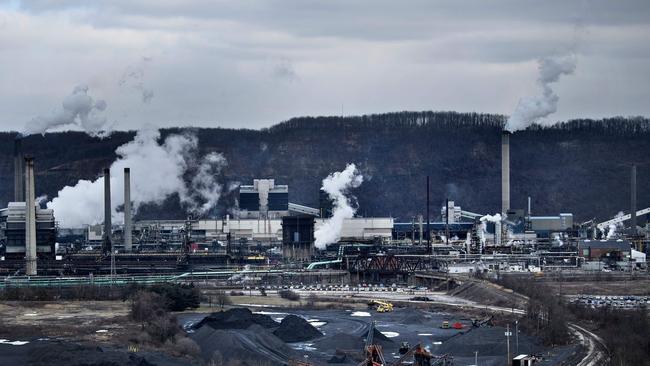Essential services: companies vie for exemptions as industry shuts down
From steelmakers to arts-and-crafts retailers, dozens of companies across the US are arguing that their operations are essential.

From steelmakers to arts-and-crafts retailers, dozens of companies across the US are arguing that their operations are essential, raising questions over how to preserve as much economic activity as possible while working to contain the coronavirus.
The companies are trying to make the case that their work is essential for the livelihood of their workers and the public good. Requests from companies to stay open have continued as more of the country and many workers retreat to their homes as the pandemic gains pace.
New York governor Andrew Cuomo on Friday ordered all non-essential businesses in the state to close and said residents should stay home. He said the restrictions would take effect Sunday evening.
Illinois governor J.B. Pritzker issued a similar order for people to stay home starting Saturday.
California, the largest state economy, on Thursday extended a regional lockdown to the state’s entire population of 40 million.
Pennsylvania governor Tom Wolf ordered all “non-life-sustaining” businesses in that state to close, too.
In response to exemption requests from steelmakers, the aerospace and defence industry, food companies, and others, the Trump administration on Thursday identified 16 industries as critical to the national response to the pandemic. The Department of Homeland Security’s Cybersecurity and Infrastructure Security Agency recommended that states maintain “critical” manufacturing operations as well as production of food and agriculture. The agency mentioned sectors including defence, transportation and energy in the shutdown-exemption guidelines.
The orders in California and some other states exempt defence companies, but some executives said some of their smaller suppliers were being affected because local officials weren’t following federal guidance. Defence companies have also called on the Pentagon to relax contractual requirements that, for example, halt funding if a factory has to close for a period because of local travel restrictions.
Thomas Gibson, president of the American Iron and Steel Institute, a trade group, welcomed the federal designation for metal makers. “Now, it is important that the states follow this federal lead,” he said.
The Pennsylvania order excluded companies including United States Steel and other metal manufacturers with plants that are difficult to quickly idle. The Pennsylvania Manufacturers’ Association on Friday urged the governor to widen those exemptions.
“This is going to badly disrupt all of our production,” said David N. Taylor, the association’s president. Even some manufacturers allowed to stay open, the association said, faced a shortage of supplies from companies ordered to close.
The National Association of Manufacturers earlier this week asked governors and mayors to designate every US manufacturer as “essential infrastructure”.
“Nothing happens without manufacturing, so you want to make sure we’re not shutting down our ability to recover,” Jay Timmons, the association’s chief executive, said.
Dukal’s warehouse in Riverside, California, is continuing to unpack and deliver orders of medical equipment despite the statewide order. Dukal, which imports face masks and other protective equipment, said it had told its 15 workers at the warehouse to show a business card if they are stopped by police on their way to or from work.
“The frontline people who are in healthcare have to stay open,” said Dukal president Gerry LoDuca.
Edward Kangeter, chief executive of scrap metal recycler CASS, said Friday that he would continue to operate his Oakland-based collection-and-processing business under the state’s allowance for suppliers to steel and aluminium producers.
“If you don’t have recycling like ours, that would be an environmental catastrophe,” Mr Kangeter said.
Some manufacturing companies have decided to close after the pandemic has reached close to their workforces. Arcimoto, a maker of small electric vehicles, halted production this week in Eugene, Oregon, and temporarily laid off about 80 of its 110 workers after someone in their county tested positive for the virus.
Chief executive Mark Frohnmayer said once the disease was found nearby, the decision to close was easy.
“If you don’t, you are really risking everyone who you are putting into that work environment,” Mr Frohnmayer said.
“Is this truly an essential activity? If it’s not, just pause.”
Newspapers have also pushed to have their operations deemed essential.



To join the conversation, please log in. Don't have an account? Register
Join the conversation, you are commenting as Logout